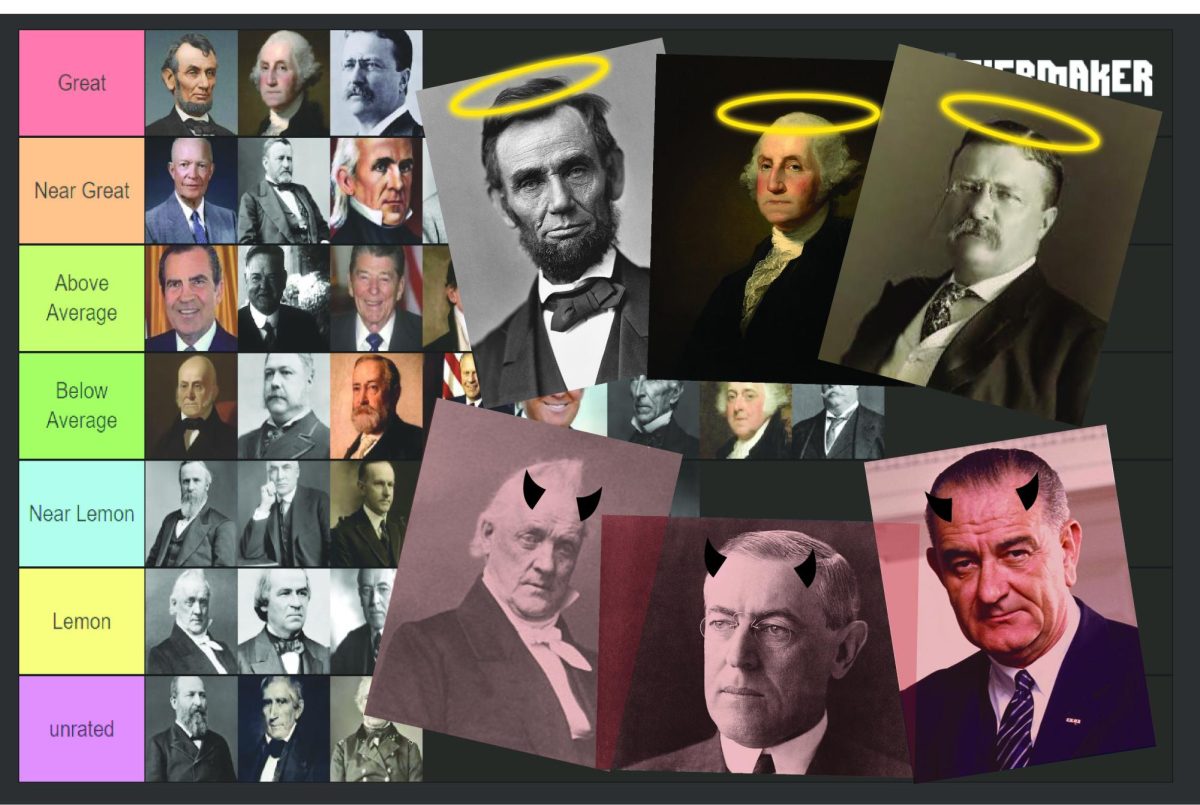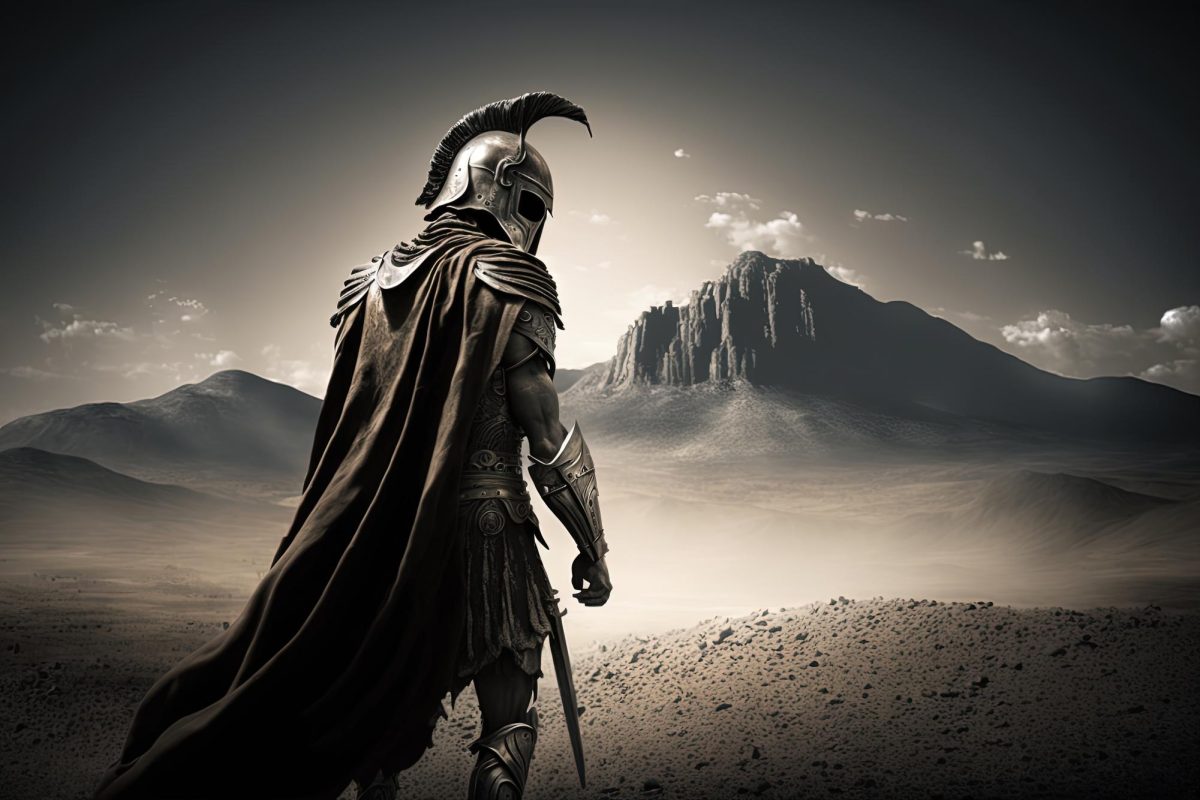There have been 45 men so challenged with the glorious burden of the Republic, like Atlas, to hold the shining city upon their shoulders. But Democracy is a harsh employer. For some, their actions echo through the halls of history in triumph. For others, their portraits are collecting dust in the closets of the White House. And what matters most to a president? How they are remembered! And what better way to measure that than by a simple ranking.
Everyone has an intuition leading them to rank things, from favorite restaurants to favorite musical artists. Historians are no different. Beginning in 1948, historians across the Union have been asked every few years to rank the presidents. This began as an informal ranking with no rules and has evolved to a C-SPAN sponsored survey of historians, journalists and biographers. But only the elite are asked their opinion by C-SPAN.
As a historian who doesn’t hold a Ph.D. or a professorial position at an Ivy League school, the chances I would get asked to share my opinion are equal to the chances that George Washington will rise from the grave to give everyone a solid third option in the coming November election. But since no one asked, I am going to give my rankings of Presidents.
A critique many people, including historians who have been asked to participate (as well as those who haven’t), is the objectivity/subjectivity inherent to comparing a president from the early Republic to a president from the 20th Century. There is no getting around the truth that rating the presidents requires a certain level of bias and self-delusion to think one can do it. I am perfectly biased and completely self-deluded, thus I will make the best rating to have ever been. If you disagree with my rating, it must be because you aren’t invited to the kinds of parties where the attendees rate the presidents for fun.
I have ranked the Presidents in five categories: Great, Near Great, Average, Near Lemon and Lemon. I choose Lemon because no president has actually failed in their capacity; the Union is still here. But while they may not have failed, some have left a real sour taste in our collective mouths.
This issue I will be going over the Great Presidents. These men have succeeded in steering a course for America that has benefited all and their actions in the Oval Office have saved the Republic from enemies Foreign and Domestic.
The Great: Abraham Lincoln, George Washington and Theodore Roosevelt
Lincoln – There is an old saying that the only man who has had more words written about himself than Abraham Lincoln is Jesus Christ. And in the American pantheon of presidents, Lincoln is the Martyr whose blood and sacrifice cleaned the stain of slavery from American fabric.
Lincoln’s tenure in the office was the most consequential of any presidents. That cannot be argued. Lincoln was the only one who actually had a chance to lose the nation. But his leadership united the north and prevented disaster from cascading. Lincoln is also among the few presidents to be assassinated. This martyrdom probably leads Americans to hold him in a higher regard than he might otherwise have earned if he had finished his second term. No one knows how he would have handled reconstruction. But what we do know is that Lincoln not only saved the Union, but the Nation.
Washington – If there is any other president beside Lincoln that could be said to have held a near religious place in the hearts of Americans, it is George Washington. Stanford historian Thomas A. Bailey wrote, “[Washington] was perhaps the only man in the history of the presidency bigger than the government itself.” Every action Washington made during his terms was precedent setting. And he made no blunders, a task only the lucky and destined can achieve.
He held the infant Republic in his arms. He has been criticized as too aristocratic by some, but he could not have been anything else. Introducing Jacksonian democracy to this fledging Republic would have overpowered and destabilized the nation. There was a reason the Constitutional Convention occurred. He was party-less, but his ideas and bias to Federalism were well-founded and steadied the nation to withstand its first partisan election in 1796 between two other Founding Fathers. Without the guiding hand of Washington, there is a good chance the Great Experiment in self-government would have gone the way of the dodo bird.
Theodore Roosevelt – The old Bull-Moose is one of those characters in the great play of the Republic whose presence on stage overshadows all the other actors. Roosevelt is one of those men whose entire life is interesting. He was always doing something, and that something is almost always important. Teddy brought an end to the string of mediocre presidents of the Gilded Age and brought the United States to the global stage at a crucial time in world history.
Domestically, Roosevelt’s policies targeted the excesses of the Gilded Age. His passage of the “Square Deal” was a modernization of the promise of “equality and justice for all.” He broke the trusts, regulated the railroads and ensured oversight into food mass-produced food. His love of nature led to the creation of the national parks and preservation of America’s bountiful natural resources. He opened the Panama Canal, connecting the Pacific and Atlantic for international trade, and put America on the map with his Great White Fleet and negotiated the end of the Russo-Japanese War, for which he won a Nobel Peace Prize. His tenure was unquestionably good for the nation and for the world.





